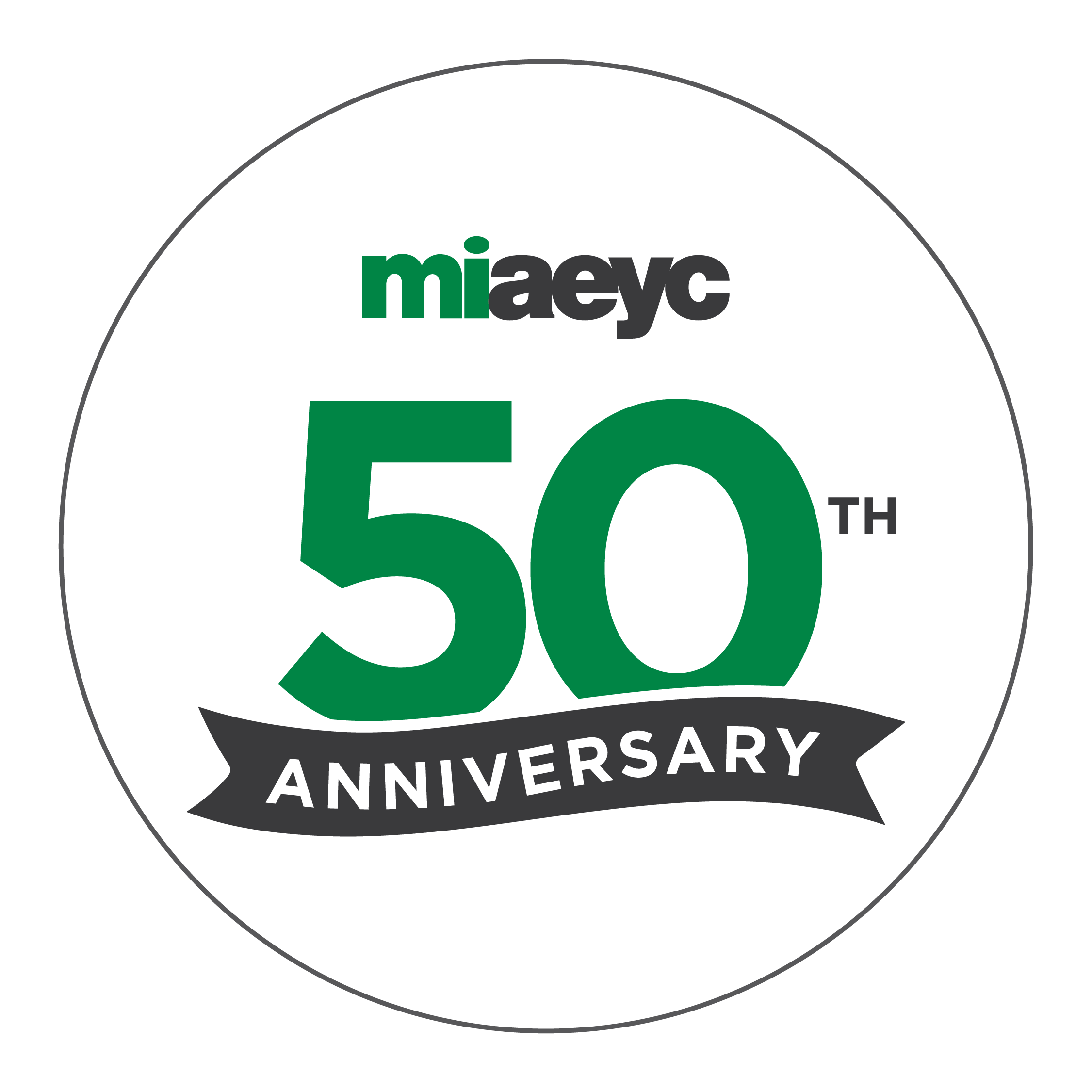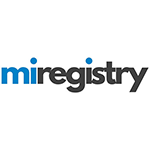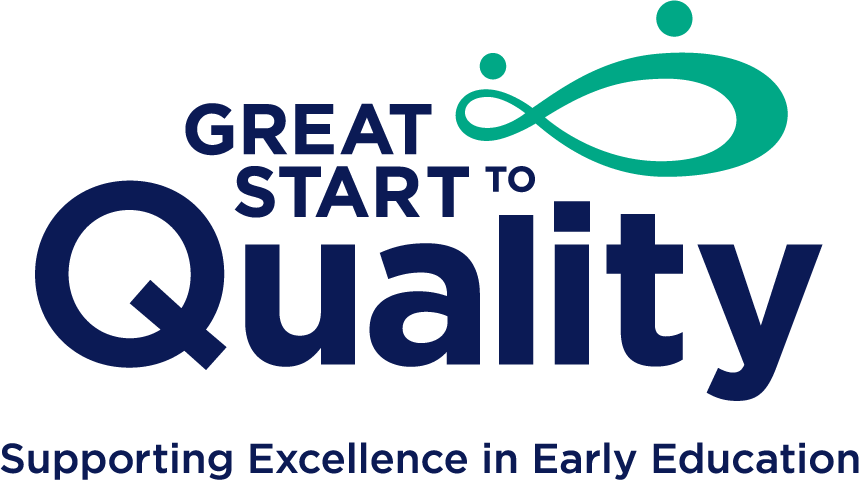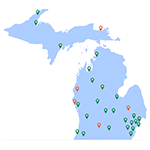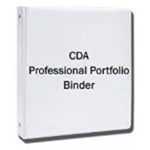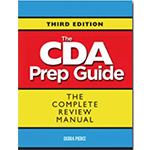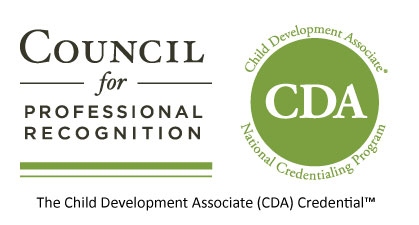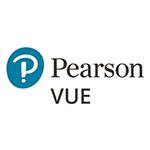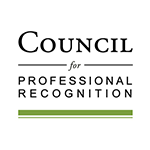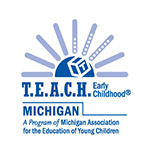CDA Resources
The Child Development Associate (CDA) Credential is a nationally recognized professional development opportunity for early educators working with children ages birth to 5 years old to demonstrate their knowledge, skills, and abilities in the early childhood education field.
miCDA connects providers in Michigan with resources and navigation to credential attainment.
Step 1
Prepare to Apply
- Determine your setting
- Complete 120 clock hours of formal training
- Complete 480 hours of work experience in the setting you are applying for
- Purchase the Competency Standards book
- Put together your professional portfolio
- Distribute family questionnaires


Step 2
Apply
- Select a Professional Development Specialist
- Fill out CDA application online at www.cdacouncil.org/yourcda
- Secure payment for your credential or apply for a scholarship to help cover the cost.
Step 3
Observation & Practice Exams
Once you have completed the CDA application process and payment has been made or a scholarship has been secured, you will receive a "Ready to Schedule" notice to the e mail address you provided in your application.
- Contact your PD Specialist to schedule your Verification Visit
- Take the CDA Exam at a Pearson Vue Testing Site.


Step 4
Receive CDA Credential
- The results from your PD Specialist's Verification Visit as well as your CDA Exam will be combined and a final determination of your eligibility for the credential is made by the Council for Professional Recognition.
- You will receive an e mail notification from the Council of your award, and then will receive your award in the mail approximately 2 weeks later.
- Renew your CDA every 3 years
CDA Info
General Information
The CDA National Credentialing Program is a professional development opportunity for early educators working with children ages birth to 5 years old to demonstrate their knowledge, skills and abilities in the early childhood education field. The CDA credentialing program assesses Candidates using multiple sources evidence, including an exam, observation and professional portfolio with resources and competency statements prepared by the Candidate.
The CDA Credential both initially and at renewal periods is a professional development opportunity for early educators at all levels of education and experience. The early childhood education field is constantly evolving and it is important for educators to stay current with key education practices. The CDA is your “best first step” because it demonstrates your knowledge, skills and abilities when working with young children, as well as your commitment to career advancement and professionalism.
The credential is considered the first qualification for being recognized at the Professional level on Michigan’s Early Childhood Career Pathway. Attaining it ensures that the professional is competent knowledgeable of best practices in educating and caring for young children. After earning a CDA, many candidates continue on to earn an associates degree in early childhood education.
The eligibility requirements to apply for a CDA Credential are as follows:
You must have a high school diploma or be a high school junior or senior in an early education/child development Career and Technical Program
Any time before you apply: Complete 120 clock hours of professional education covering the eight CDA Subject Areas
Within 3 years before you apply: Obtain 480 hours of experience working with young children
Within 6 months before you apply: Prepare a CDA Professional Portfolio according to the requirements outlined in the CDA Competency Standards book
A CDA meets the requirements to work in the following positions in Michigan:
Child Care Center Director (with 18 semester hours and 960 hours of experience in the field)
School-Age Program Director (with 12 semester hours and 480 hours of experience in the field)
Lead Caregiver (with 480 hours of experience in the field)
GSRP Assistant Teacher
Head Start Assistant Teacher
While it is not a requirement for employment, earning a CDA will adequately prepare candidates to work as a family or group home child care provider, as well as an assistant caregiver.
Licensing website: https://www.michigan.gov/lara/about/careers
Purchase a CDA Competency Standards book for the setting you wish to earn your CDA in. This book will provides valuable information about the application process and also includes copies of several documents you will be required to reference through the process. You can obtain the book here: http://store.cdacouncil.org/cdaapplicationpackets.aspx
Complete 120 clock hours of training that meet the requirements of having 10 hours in each of the 8 Functional Areas. Visit the FAQ section to find a link to the 8 Functional Areas of the CDA.
Navigate to Michigan AEYC/T.E.A.C.H. site to locate colleges offering training. Several colleges offer the training online. T.E.A.C.H. Early Childhood® Michigan can help cover a large portion of the cost to take the CDA training through a community college.
Navigate to miregistry.org site to locate community trainings.
Compile your portfolio
Distribute parent questionnaires
Select a Professional Development Specialist to serve as your reviewer
Apply to the Council for Professional Recognition
Apply for a T.E.A.C.H. scholarship if you qualify
Wait for your Ready to Schedule Notice from the Council for Professional recognition to be e-mailed.
Follow instructions in e-mail to schedule your CDA Exam at a Pearson Vue testing site Pearson VUE is the Council’s partner for delivering the CDA Exam at testing centers all over the country. The Council has partnered with Pearson VUE in order to create a more powerful professional development experience for CDA Candidates. The CDA Exam has 65 multiple-choice questions – 60 questions and 5 scenario questions. The Candidate will have up to one hour and 45 minutes to complete the exam. The only computer-based skill needed to take the Exam is the ability to point and click a mouse. The exam requires no scrolling, typing or even double-clicking.
Follow instructions in e-mail to schedule your Observation visit with your PD Specialist
Wait for notification of your CDA award from the Council for Professional Recognition
Download printable CDA Application
CDA RENEWAL PROCESS
- Within one year of CDA expiration, select an ECE Reviewer to complete your recommendation and verify 80 hours of work experience with children specific to your credential type. The ECE Reviewer should be someone you know who meets the eligibility requirements provided in the CDA Renewal Packet and has knowledge of your work with children. Your ECE reviewer can be your Director, Education Specialist or even a teacher that works in another classroom.
- Obtain 4.5 CEU’s, a 3 credit hour course or 45 clock hours in the form of a college transcript, training organization letter, approved state registry transcript or Director’s Form. The training must occur between the award date of the initial credential and the renewal.
- Ensure pediatric CPR and First Aid certification is valid.
- Ensure you have an active membership with an early childhood focused professional organization. See the link for membership information for the National Association for the Education of Young Children. http://www.miaeyc.org/membership/
- Apply online as early as 6 months prior to your credential expiration date at www.cdacouncil.org. Create a YourCDA online profile and complete renewal application. All documents and payment will be submitted to the YourCDA system.
- Apply for a T.E.A.C.H. Early Childhood Michigan scholarship to help cover the cost of the $125 online renewal fee. http://www.miaeyc.org/professional-development/t-e-a-c-h-scholarships/scholarship-information/cda-assessment-scholarship/
- Renew credential every three years.
If you are applying for a second CDA or you require application materials in a language other than English, you may submit a paper application. An English version paper application is located in the Competency Standards book. For languages other than English, please contact the Council.
Step 1
Please review the CDA Credential settings below to determine which best describes your work with young children:
PRESCHOOL: A center-based preschool setting is a state-approved child development center where a Candidate can be observed working with a group of at least eight children, all of whom are ages 3 through 5 years old
INFANT-TODDLER: A center-based infant-toddler setting is a state-approved child development center where a Candidate can be observed working with a group of at least three children, all of whom are under the age of 3 years old.
FAMILY CHILD CARE: A family child care setting is a family child care home where a Candidate can be observed working with at least two children 5 years old or younger who are not related to the Candidate by blood or marriage. The setting must meet at least the minimum level of applicable state and/or local regulations. Family child care settings are also eligible in localities where there is no regulation of family child care.
HOME VISITOR: A home visitor setting is an established program of home visits (to families with children 5 years old or younger) that supports parents in meeting the needs of their young children. In this setting, regular home visits are the primary method of program delivery. Candidates for a Home Visitor credential follow a slightly different assessment process. For information on how to earn a Home Visitor CDA Credential, click here.
Formal CDA training can be taken at many community colleges in Michigan and can typically be attained by completing an average of 12 credit hours. There are several completely online programs available for college credit. Link to http://www.miaeyc.org/map/cda-training-colleges-for-college-credit/ map to show credit-bearing CDA training opportunities
Non-credit training opportunities can be found by utilizing the statewide training calendar on Michigan’s Professional Development Registry at www.miregistry.org. The search function allows you to locate training based on the CDA functional areas.
The Michigan Association for the Education of Young Children also provides statewide professional development opportunities for SCECHs and/or clock hours. Visit http://www.miaeyc.org/professional-development/ for current opportunities.
It is important to note that the Council for Professional Recognition does not endorse or provide training to complete the required 120 clock hours. It is up to the individual candidate to determine how they want to attain the training hours required. The training hours can be for credit or noncredit, however they must be earned through an agency or organization with expertise in early childhood teacher preparation. The agency or organization must verify your education in the form of an official transcript, certificate, or letter. The Council does not accept training provided by individual consultants.
- Planning a safe and healthy learning environment
- Example training topics: Safety, first aid, health, nutrition, space planning, materials and equipment, play
- Advancing children’s physical and intellectual development
- Example training topics: Large and small muscle, language and literacy, discovery, art, music, mathematics, social studies, science, technology, and dual language learning
- Supporting children’s social and emotional development
- Example training topics: Adult modeling, self-esteem, self-regulation, socialization, cultural identity, conflict resolution
- Building productive relationships with families
-
- Example training topics: Parent involvement, home visits, conferences, referrals, communication strategies
- Managing an effective program operation
- Example training topics: Planning, record keeping, reporting, community services
- Maintaining a commitment to professionalism
- Example training topics: Advocacy, ethical practices, workforce issues, professional development, goal setting, networking
- Observing and recording children’s behavior
- Example training topics: Tools and strategies for objective observation and assessment of children’s behavior and learning to plan curriculum and individualize teaching, developmental delays, intervention strategies, individual education plans
- Understanding principles of child development and learning
- Example training topics: Typical developmental expectations for children from birth through age 5, individual variation including children with special needs, cultural influences on development, an understanding of early brain development
You are required to complete at least 10 clock hours of training in each of the 8 functional areas with an additional 40 hours in any of the areas to complete the 120 clock hour requirement.
How can I help to ensure my training will be accepted by the Council?
All training must have been taken under the auspices of an early childhood training agency that has expertise in teacher preparation. Official documentation of the training must be provided in the form of a certificate, letter on official letterhead or a college transcript.
Training documentation should include the following: Training agency’s name and address (seal/logo), Candidate’s name, date of the training session(s), content area, number of hours successfully completed, and an authorized signature.
How do I convert my clock hours into training hours?
- 1 CEU = 10 clock hours
- 1 Semester Credit = 15 clock hours
- 1 Quarter Credit = 10 clock hours
- 1 DHS Credit = 1 clock hour
- 1 Unit = 1 clock hour
To be eligible to apply for your first CDA, you need:
- 12 CEUs = 120 clock hours
- 8 Semester Credits = 120 clock hours
- 12 Quarter Credits = 120 clock hours
The Professional Portfolio is compiled independently by each Candidate as part of the CDA credentialing process. The compiled resources and documents are reviewed by the CDA PD Specialist during the CDA Verification Visit. The Professional Portfolio is composed of:
- My CDA Professional Portfolio cover sheet
- This is found in the back of the CDA Competency Standards Book. Use this cover sheet as a checklist to ensure your portfolio is complete.
- Summary of My CDA Education cover sheet
- This is found in the back of the CDA Competency Standards Book.
- Place your transcripts, certificates, letters, etc behind this cover sheet.
- Family Questionnaires cover sheet
- This is found in the back of the CDA Competency Standards book.
- Place your completed family questionnaires behind this cover sheet.
- Resource Collection
- Resource section 1
- Valid and current First Aid and Infant/child CPR certification
- A copy of a sample weekly menu
- A sample weekly plan for the age group your CDA setting will be with. It should include goals and descriptions of experiences as well as accommodations for children with special needs.
- Resource section 2
- Nine learning experiences written in your own words with one in each of the following curricular areas: Science/Sensory, Language and Literacy, Creative Arts, Fine Motor (inside), Gross Motor (outside), Self-Concept, Emotional Skills/ Regulation, Social Skills, Mathematics.
- Resource section 3
- A bibliography that includes the titles, authors, publishers, copyright dates, and short summaries of ten developmentally appropriate children’s books you have used. Topics should relate to children’s lives and challenges. Examples include: cultural identity, gender identity, children with special needs, family structures, the life cycle
- Resource section 4
- Family Resource Guide
- Name and contact information of a local agency that provides family counseling
- Name and contact information of a translation service as well as a service that provides American Sign Language translation
- Name and contact information with a description of two agencies in the community that provide resources and services for children with disabilities
- List of three or more websites with descriptions that provide information to families about how children learn and develop. Include a current article for each site and include at least one article related to child guidance.
- Family Resource Guide
- Resource section 5
- Three samples of record keeping forms including an accident report form, and emergency form, and an observation/assessment form
- Resource section 6
- Name and contact information of your state’s agency that is responsible for the regulation of child care centers and family child care homes. In Michigan, the agency that performs this regulation is the Bureau of Licensing and Regulatory Affairs www.lara.gov.
- List of 2-3 early childhood associations including website addresses and description of professional resources and membership opportunities
- Summaries of the legal requirements in your state regarding child abuse and neglect and Mandatory Reporting Guidelines. In Michigan, this information can be found on the Mandated Reporter’s Resource Guide found on the Michigan Department of Health and Human Services website www.michigan.gov/mdhhs
- Resource section 1
- Six (6) Reflective Statements of Competence
- The instructions for completing the Reflective Statements of Competence are found in the Competency Standards book on p. 17. The length of each reflective statement will vary, but will be between 1-4 paragraphs each. The purpose of the is section is to reflect on your own teaching practices, relationships, and professionalism. You should draw on real experiences and practices. The 6 Competency Statement subjects are listed below:
- To establish and maintain a safe, healthy learning environment
- To advance physical and intellectual competence
- To support social and emotional development and to provide positive guidance
- To establish positive and productive relationships with families
- To ensure a well-run, purposeful program that is responsive to participant needs
- To maintain a commitment to professionalism
- The instructions for completing the Reflective Statements of Competence are found in the Competency Standards book on p. 17. The length of each reflective statement will vary, but will be between 1-4 paragraphs each. The purpose of the is section is to reflect on your own teaching practices, relationships, and professionalism. You should draw on real experiences and practices. The 6 Competency Statement subjects are listed below:
- A Professional Philosophy Statement
The Professional Philosophy Statement should summarize your professional beliefs and values about early childhood education after completing the portfolio. It should be no longer than two pages in length.
Use these questions to write your statement: How do you believe young children learn? And based on this, what do you believe your role is?
Step 2
To apply for the CDA credentials, you will need to use the Council for Professional Recognition’s online application portal at www.cdacouncil.org/yourcda. You will create a login so that you can continually progress through the application process. Some things you will need ready before you apply:
- Summary of your CDA Education Training Hours
- E-Mail of your program director if working in a center-based setting
- PD SPecialist’s ID number
View a tutorial of the application process using scholarship assistance HERE.
Download printable CDA Application Process instructions HERE
Step 3
Reviews the contents of the Professional Portfolio, the training transcripts/certificates and Family Questionnaires.
Observes the Candidate working with children, focusing on the Candidate’s area of strength or growth found int he Portfolio and/or seen in the Observation or identified in the Family Questionnaires.
The CDA Exam is an online test taken at a Pearson Vue testing center. There are testing locations throughout Michigan. Visit the Pearson Vue website (www.pearsonvue.com/cdaexam) to find the site offering the exam nearest you.
The exam has 65 multiple choice questions. Candidates have one hour and 45 minutes to complete the exam. Although the exam is taken on a computer, the only computer-based skill needed to take it is the ability to point and click a mouse.
Click here to take a practice CDA Exam. https://www.quia.com/quiz/863967.html
Step 4
To apply for the CDA credentials, you will need to use the Council for Professional Recognition’s online application portal at www.cdacouncil.org/yourcda. You will create a login so that you can continually progress through the application process. Some things you will need ready before you apply:
- Summary of your CDA Education Training Hours
- E-Mail of your program director if working in a center-based setting
- PD SPecialist’s ID number
View a tutorial of the application process using scholarship assistance HERE.
Download printable CDA Application Process instructions HERE

